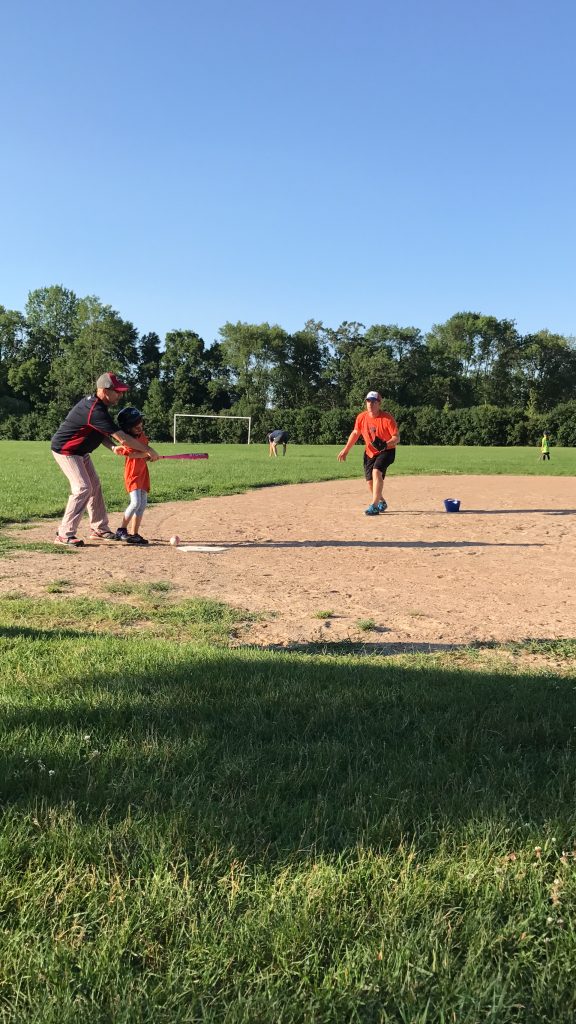Why House League Sports Are So Important

It was my seven-year-old daughter’s turn up to bat. She’s not the strongest hitter on the team, but that doesn’t stop her teammates from chanting her name as she waits for the first pitch.
From my spot on the sidelines, I can see her smile stretching from one ear to the other, as she takes in the sounds of her fan club.
She swings wildly and misses, before her coach steps forward and readjusts her position for the next try. When she finally makes contact with the ball, she stands bewildered for a moment until she catches sight of her other coach jumping up and down and waving from the first base. When she gets there, he gives her an exuberant high five.
That ear-to-ear smile doesn’t go anywhere.
If she had been playing on a team with a competitive vibe, her performance would have been met with disapproval, maybe even some parental groans from the sidelines. In fact, with her batting average, she probably wouldn’t have made it off the bench to give it a try.
Why House League Sports Are So Important
I’m no stranger to the world of competitive sports. I had two other children who participate at that level, and I think there’s so much to be gained from earning a spot on the team, so to speak. But when I received a parents’ email before the first game in this house league — reminding parents that verbal abuse would result in expulsion from the game — I felt a familiar concern (the same one that had us pulling our son from house league hockey years before).
Are we forgetting about the kids who just want to play? Statistics show an increasing number of Canadian kids are giving up on sports by age 13. And we can’t lay the blame on social media and screens. In fact, many kids say they quit because they feel like they aren’t good enough to compete in what’s become an uber-competitive environment across all organized sports.
If you want to play a sport, there’s a feeling that you have to be really good at it. And for some sports, it can also mean having to do extra training in the off-season to “keep up.” Extra long seasons mean costs that a lot of families can’t meet, and it can also just suck the fun out of the game.
And we all know that kids dropping out of organized sports doesn’t mean they’re spending time playing pick up or house league instead. Why not? Because it’s hard to find house league programs for kids that are valued for being non-competitive; instead some parents and coaches are treating these leagues as a chance for their kid to get ahead or be seen.
My daughter made it all the way around the bases, thanks to the batting efforts of her teammates (who all get a turn in this league). And she’s back at the bench grabbing her glove, so she can head out into the field and maybe catch some grounders (and if she misses, that’s okay too).
I don’t think we need to do away with competitive sports and activities for kids, but we need to hold on tight to house league sports and honour them for what they are: a fun game of softball, under a beautiful summer sky; where a kid who mostly misses the ball can still feel the thrill of a home run.














Hi, thank you very much. good job.
voyance mail gratuit – http://www.voyance-marie-liesse.com